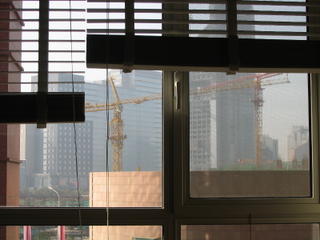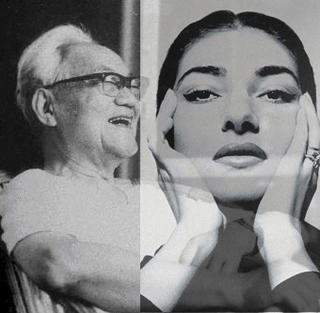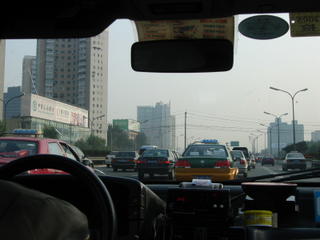
It’s 2am. I sat on the beige-colored carpet floor in Ying and Yang’s townhouse in Orange County. The midnight air brought in mixed scents of flowers. The water fountain serenaded quietly not too far away. Yet next to me sitting across from each other, Ying and Yang were mentioning the unthinkable – separation, alimony, child support…
They had been together for 11 years, married for 7. Like me, they came to the US right after college for graduate school. Both quit their Ph.D. programs in science. Ying worked in biotech, then got an MBA degree and was now enjoying her own profitable real estate business. Yang pursued a degree and then a career in hitech. The stock options from the first company he worked for got them the house. Now they were buying apartments with stock-option money earned from his current employer. A typical story of American dreams.
Nine months ago Ying told me she was pregnant. I asked if she’s certain she would like to keep it. Yang hadn’t been the most reliable husband. She said from what she learned, husbands usually changed to be more family-focused after having a baby. So seven months later they had a beautiful baby boy.
However, one month before the delivery, Ying found out Yang had been seeing a woman he worked with. Yang promised to cut it off. One month after the delivery, Ying’s friends bumped into Yang with the same woman in Las Vegas.
This is unfair; Ying cried next to me at 2am, her eyes red and puffed up. I do want to leave him, but it’d be unfair to the baby; I can’t stand the thought of him meeting, or even just thinking of the other woman, while I’m taking care of the baby. How could you? She asked Yang. How could you, after so many years, have so little compassion for your wife?
Yang mumbled through his drooping mouth, his eyes looking away – I do love the baby, and I do care about you; let’s not talk about separation; maybe in 6 months I’ll get over this phase; I don’t know what I want; can you wait?
Most of Ying’s friends counseled her to divorce Yang. He’s selfish, and childish; they all say. Sitting by him at 2am, I’d also like to blame the sinner and tell him – go to hell; you deserve to pay a lot of alimony and child support; you deserve to be despised by all the people who know about you.
But could he have helped it?
Yang grew up in a broken family. Emotionally he had always been a bit needy, a bit, idealistic. Once chatting with me alone, he confided in me that unlike most other men, he’s not looking for meaningless sex outside marriage; rather, he’s looking for affection, that human touch, and the possibility for a true love that consumes and transcends.
I gasped when I first heard this. Is this fantasy something he’s willing sacrifice what he had for? He hesitated.
Can we blame the sinners if the sinners can’t help committing the sins? I wondered while Ying leaned on my shoulder and cried. Why some can take responsibilities while others mostly focus on their own needs? Obviously he can’t fall back in love with Ying anytime soon, so is it wise to counsel them to stay together in a loveless marriage for the sake of the baby?
Was he really free when deciding to betray his wife? He probably was never fully satisfied emotionally with his wife to begin with, and is now finally confident enough, after his financial and career advancements, to pursue his passion, or fantasy. There have to be other factors from his growing up in China, his desire for more excitements in life, and his dissatisfaction with the suburban middle-class lifestyle that had nudged him into this path.
If he had been compelled by his past to do what he had done, could I blame him?
The philosophy book I’m reading now has a long chapter on free will. The author argued for the existence of free will, and defined it this way:
“The subject acted freely if she could have done otherwise in the right sense. This means that she would have done otherwise if she had chosen differently and, under the impact of other true and available thoughts or considerations, she would have chosen differently. True and available thoughts and considerations are those that represent her situation accurately, and are ones that she could reasonably be expected to have taken into account.”
I’m not entirely convinced.
Some other philosophers argued that the lack of free will doesn’t necessitate the demise of responsibilities. Human beings are flexible enough, they say, and assigning blame and responsibilities will help guide future actions.
I deliberated on which point I should bring up for Ying and Yang to consider. But Yang’s raised voice distracted me. Ying had just proposed a formal separation. Yang objected strongly; if his emotional forays would lead to child support and alimony and the loss of what he has, he would stay in the marriage. Plus, that’s what most Chinese husbands do anyway, especially those prospering men in China’s big cities with their mistresses and frequent visits to KTVs.
Seriously, Yang had been an honest husband, comparatively. Plus, who can say that his fantasy of finding a true love may not become true one day?
But Ying was still crying. So I jumped in and offered this to Yang:
“Stop worrying so much about alimony and child support. You have been a bastard and you can’t help being one. Thank god Ying is a strong woman who can raise the baby alone. But you can’t want an adventure and at the same time don’t want to lose any of what you have now. You have to make a choice. Life is a journey and in the near future yours will be very tough. I only wish you the best luck to find what you are looking for.”
That seemed the only sensible thing to say at 2am. Free or not free, we all have to continue this illusive path to find happiness.








